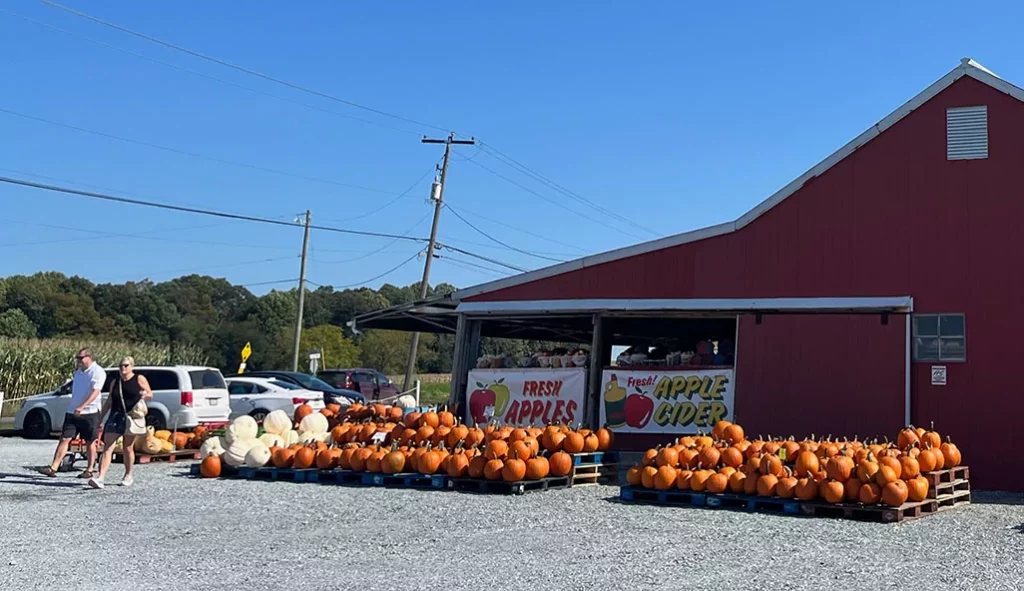LANCASTER, Pennsylvania — Chris Herr, the executive vice president of PennAg, a Pennsylvania agriculture trade association, said the announcement on Tuesday morning that U.S. dockworkers are striking will have an immediate and devastating impact on farmers everywhere across the country.
“It has the potential to disrupt U.S. grains as well as several other commodity exports at the very time American farmers are looking to sell bumper harvests,” Herr said of the strike in a state whose economy runs on agribusiness.

Herr is right about the importance of agriculture for the Pennsylvania economy. The commonwealth depends on the dairy, produce, and livestock that is grown and produced here. The latest data from the Pennsylvania Department of Agriculture indicate that agriculture contributes $132.5 billion to the state’s economy, annually supporting nearly 600,000 jobs that pay almost $33 billion.
Herr said a port strike could halt shipments across the globe. “This is happening just as harvest season gets underway. It not only hurts the ability for the farmer to drive a profit, but it also really disrupts the supply chain,” he said.
This time of year, a lot of people who live outside this bucolic Pennsylvania county spend their time and their money as tourists enjoying the idyllic rolling hills, quaint local farm stands selling the fruits of the harvest, pumpkin patches where families can pick their own prize, and corn mazes where children can dart around and find their way out.
Farm stands are spread throughout the state, some of them unmanned, working on an honor system that helps supplement the farmers’ often unstable bottom line.
Here in Lancaster, nearly 100% of the farms are family-owned, and millions of tourists, particularly during October, spend over $1.6 billion in the region enjoying what is affectionately known as farm tourism, especially in the pockets of Amish farms in the region.
According to Lancaster County economic data, this Pennsylvania county holds the distinction of having America’s most productive farmland without the use of irrigation. Farms here boost the local economy at a value of $6 billion per year.
Since its days as a colony, agribusiness has been central to the culture and economy of Pennsylvania. Thanks to the rolling Appalachian Mountains and the endless miles of farm fields, orchards, and forestry, it has shaped our economy and our identity.
“Farmers have already been struggling with declining profitability because of how much the cost of running a farm has grown in the past few years while commodity profits have dropped. This is just one more blow for farmers that will cause a ripple effect that will impact all of us,” Herr said.
The Conference Board estimates a strike could cost the economy of the United States $540 million a day.
On Tuesday, U.S. ports from Maine to Texas shut down when 45,000 longshoremen went on strike. While most of the news of the strike centered on the impact it might have on retail sales ahead of the holiday shopping season, it is the independent farmer’s and trucker’s ability to move commodities that can ultimately end up having a larger effect on our food supply.
Some of the demands that the International Longshoremen’s Association is asking for include a 77% pay raise and a complete ban on the automation of moving freight either off or on cargo ships in the 36 ports on the East Coast.
CLICK HERE TO READ MORE FROM THE WASHINGTON EXAMINER
ILA President Harold Daggett said the provisions in the new six-year contract are needed in order to keep up with inflation. On average, ILA union members have an annual base salary of $81,000 with the potential to reach well over six figures with overtime.
Herr, who comes from a multigenerational farm family, said: “Here is the thing about a farmer. Despite all of the outside forces that impact their livelihoods, whether it is the weather, the changing tastes of the consumer, politics and trade deals, and, well, now a strike, farmers can’t go on strike. Their prosperity is almost always out of their hands.”
